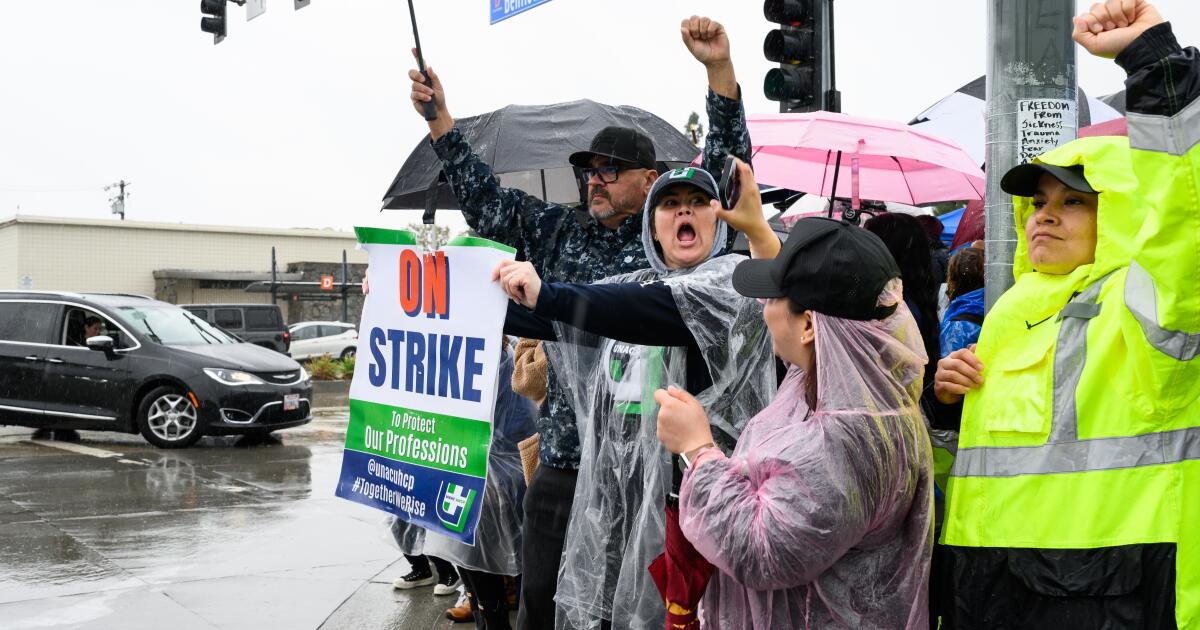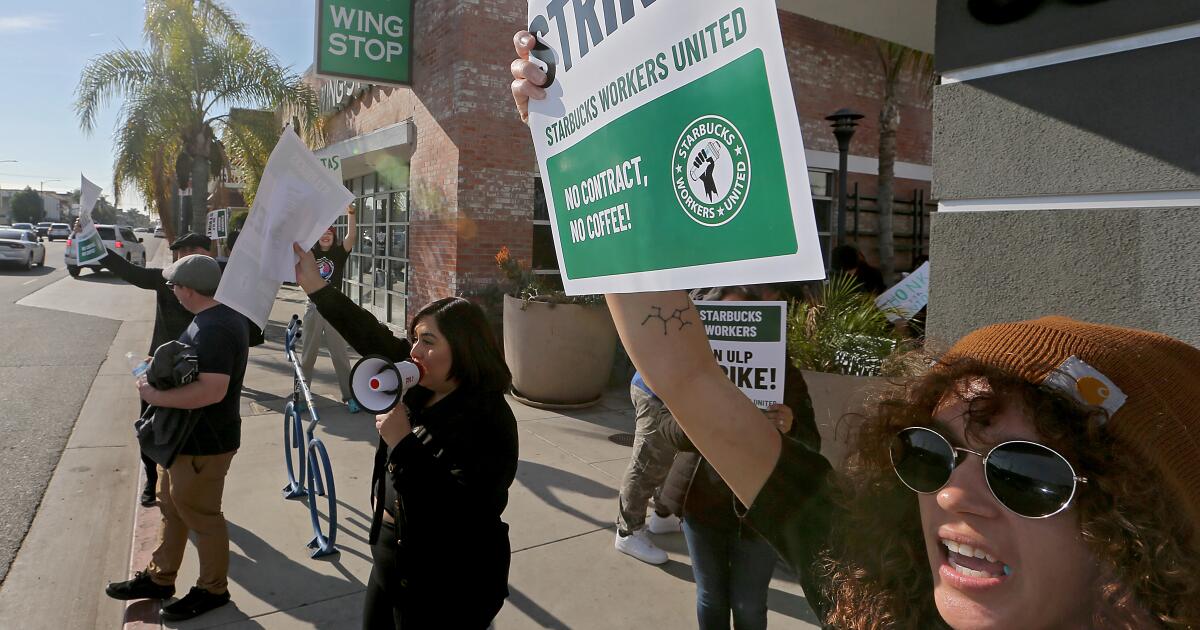The health care workers’ strike at Kaiser Permanente ends after 5 days
A five-day strike that affected hundreds of Kaiser Permanente clinics and hospitals in California and Hawaii ended after the labor union said it had “new momentum” to return to the bargaining table, but no apparent agreement was reached.
“This strike may be over – but the fight for patient safety is not,” UN Nurses Assn. The California Association of Health Care Professionals, known as UNAC/UHCP, said in a statement. “Carers are returning to work united, empowered and ready to continue pushing for a fair deal that puts patients first.”
Kaiser and union officials are scheduled to resume bargaining on Wednesday and Thursday.
The union has asked for a 25% pay increase over four years, a request that union officials said was needed to compensate for the small 2% increase received in the first year as part of the 2021 contract negotiations.
The union has also pushed for additional staffing, and has proposed an online union nurse internal registry, so that the company does not have to rely on contract travel nurses.
Kaiser officials have argued that employees earn an average of 16% more than their peers in the industry, and that the proposed wage increase boosted their “already above-market wages during the 4-year contract.”
Company officials said the company offered a 21.5% pay increase over four years before calling the strike, as well as additional improvements in medical plans and retirement benefits.
Workers returned to work at 7 a.m. Sunday, Kaiser officials said
During the strike, the facility was staffed with doctors, administrators and nearly 6,000 contract nurses and clinicians to minimize disruption to care, officials said.
On Sunday, UNAC/UHCP announced the end of the strike, saying the work action “sent a strong message that patient care and safe workers must come first.”
The union pointed to new staffing standards published by The Joint Commission, a nonprofit that accredits health care organizations, that identified adequate staffing as part of providing needed care.
The union said in a statement that the new standard shifts staffing levels away from employer choice, which can be affected by budget constraints, to a patient safety standard.
“The Joint Commission concluded that what nurses have known all along: unsafe staffing is unsafe care,” Charmaine S. Morales, UNAC/UHCP president, said in a statement. “This is now a national patient safety mandate – and UNAC/UHCP will ensure it is implemented.”
Kaiser officials said they welcome the return of the 30,000 workers who went on strike, but said in a statement that the main point of contention at the bargaining table is wages, not workers.
“While the union has publicly emphasized employee and other concerns, pay is the cause of the strike and the primary issue in negotiations,” Kaiser spokesman Terry Conakry said in a statement.
Conakry said in the statement that during the deal, “the focus will be on economic issues.” “At a time when the cost of health care is rising rapidly, and millions of Americans must make the difficult choice to go without coverage, it’s important that we keep quality, accessible health coverage affordable.”
Meanwhile, union officials have blamed the company for holding $66 billion in reserves and developing projects in other states.




Post Comment